『武士道 Bushido 』-新渡戸稲造(Inazo Nitobé)-
Chapter 02
(Sources of Bushido 武士道の源をさぐる)
Bushido, the Soul of Japan by Inazo Nitobe
[Book]
[reading]
・Chapter TOP 新渡戸稲造(Inazo Nitobé)TOP
・Chapter 00(Prefaces 序文)
・Chapter 01(Bushido as an Ethical System 武士道とは)
・Chapter 02(Sources of Bushido 武士道の源)
・Chapter 03(Rectitude or Justice 「義」)
・Chapter 04(Courage, the Spirit of Daring and Bearing 「勇」)
・Chapter 05(Benevolence, the Feeling of Distress 「仁」)
・Chapter 06(Politeness 「礼」)
・Chapter 07(Veracity or Truthfulness 「誠」)
・Chapter 08(Honor 「名誉」)
・Chapter 09(The Duty of Loyalty 「忠義」)
・Chapter 10(Education and Training of a Samurai 武士は何を学びどう己を磨いたか)
・Chapter 11(Self-Control 人に勝ち己に勝つために)
・Chapter 12(The Institutions of Suicide and Redress 「切腹」)
・Chapter 13(The Sword, the Soul of the Samurai 「刀」)
・Chapter 14(The Training and Position of Woman 武士道が求めた女性の理想像)
・Chapter 15(The Influence of Bushido 「大和魂」)
・Chapter 16(Is Bushido Still Alive? 武士道は蘇るか)
・Chapter 17(The Future of Bushido 武士道から何を学ぶか)
・[修養]、
・[自警録]
of which I may begin with Buddhism. It furnished a sense of calm trust in Fate, a quiet submission to the inevitable, that stoic composure in sight of danger or calamity, that disdain of life and friendliness with death. A foremost teacher of swordsmanship, when he saw his pupil master the utmost of his art, told him, "Beyond this my instruction must give way to Zen teaching." "Zen" is the Japanese equivalent for the Dhyâna, which "represents human effort to reach through meditation zones of thought beyond the range of verbal expression." Its method is contemplation, and its purport, as far as I understand it, to be convinced of a principle that underlies all phenomena, and, if it can, of the Absolute itself, and thus to put oneself in harmony with this Absolute. Thus defined, the teaching was more than the dogma of a sect, and whoever attains to the perception of the Absolute raises himself above mundane things and awakes, "to a new Heaven and a new Earth."
Ruskin was one of the most gentle-hearted and peace loving men that ever lived. Yet he believed in war with all the fervor of a worshiper of the strenuous life. "When I tell you," he says in the Crown of Wild Olive, "that war is the foundation of all the arts, I mean also that it is the foundation of all the high virtues and faculties of men. It is very strange to me to discover this, and very dreadful, but I saw it to be quite an undeniable fact. * * * I found in brief, that all great nations learned their truth of word and strength of thought in war; that they were nourished in war and wasted by peace, taught by war and deceived by peace; trained by war and betrayed by peace; in a word, that they were born in war and expired in peace."
Lafcadio Hearn, Exotics and Retrospectives, p. 84.
What Buddhism failed to give, Shintoism offered in abundance. Such loyalty to the sovereign, such reverence for ancestral memory, and such filial piety as are not taught by any other creed, were inculcated by the Shinto doctrines, imparting passivity to the otherwise arrogant character of the samurai. Shinto theology has no place for the dogma of "original sin." On the contrary, it believes in the innate goodness and God-like purity of the human soul, adoring it as the adytum from which divine oracles are proclaimed. Everybody has observed that the Shinto shrines are conspicuously devoid of objects and instruments of worship, and that a plain mirror hung in the sanctuary forms the essential part of its furnishing. The presence of this article, is easy to explain: it typifies the human heart, which, when perfectly placid and clear, reflects the very image of the Deity. When you stand, therefore, in front of the shrine to worship, you see your own image reflected on its shining surface, and the act of worship is tantamount to the old Delphic injunction, "Know Thyself." But self-knowledge does not imply, either in the Greek or Japanese teaching, knowledge of the physical part of man, not his anatomy or his psycho-physics; knowledge was to be of a moral kind, the introspection of our moral nature. Mommsen, comparing the Greek and the Roman, says that when the former worshiped he raised his eyes to heaven, for his prayer was contemplation, while the latter veiled his head, for his was reflection. Essentially like the Roman conception of religion, our reflection brought into prominence not so much the moral as the national consciousness of the individual. Its nature-worship endeared the country to our inmost souls, while its ancestor-worship, tracing from lineage to lineage, made the Imperial family the fountain-head of the whole nation. To us the country is more than land and soil from which to mine gold or to reap grain—it is the sacred abode of the gods, the spirits of our forefathers: to us the Emperor is more than the Arch Constable of a Rechtsstaat, or even the Patron of a Culturstaat—he is the bodily representative of Heaven on earth, blending in his person its power and its mercy. If what M. Boutmy says is true of English royalty—that it "is not only the image of authority, but the author and symbol of national unity," as I believe it to be, doubly and trebly may this be affirmed of royalty in Japan.
The English People, p. 188.
The tenets of Shintoism cover the two predominating features of the emotional life of our race—Patriotism and Loyalty. Arthur May Knapp very truly says: "In Hebrew literature it is often difficult to tell whether the writer is speaking of God or of the Commonwealth; of heaven or of Jerusalem; of the Messiah or of the nation itself." A similar confusion may be noticed in the nomenclature of our national faith. I said confusion, because it will be so deemed by a logical intellect on account of its verbal ambiguity; still, being a framework of national instinct and race feelings, Shintoism never pretends to a systematic philosophy or a rational theology. This religion—or, is it not more correct to say, the race emotions which this religion expressed?—thoroughly imbued Bushido with loyalty to the sovereign and love of country. These acted more as impulses than as doctrines; for Shintoism, unlike the Mediaeval Christian Church, prescribed to its votaries scarcely any credenda, furnishing them at the same time with agenda of a straightforward and simple type.
"Feudal and Modern Japan" Vol. I, p. 183.
As to strictly ethical doctrines, the teachings of Confucius were the most prolific source of Bushido. His enunciation of the five moral relations between master and servant (the governing and the governed), father and son, husband and wife, older and younger brother, and between friend and friend, was but a confirmation of what the race instinct had recognized before his writings were introduced from China. The calm, benignant, and worldly-wise character of his politico-ethical precepts was particularly well suited to the samurai, who formed the ruling class. His aristocratic and conservative tone was well adapted to the requirements of these warrior statesmen. Next to Confucius, Mencius exercised an immense authority over Bushido. His forcible and often quite democratic theories were exceedingly taking to sympathetic natures, and they were even thought dangerous to, and subversive of, the existing social order, hence his works were for a long time under censure. Still, the words of this master mind found permanent lodgment in the heart of the samurai.
The writings of Confucius and Mencius formed the principal text-books for youths and the highest authority in discussion among the old. A mere acquaintance with the classics of these two sages was held, however, in no high esteem. A common proverb ridicules one who has only an intellectual knowledge of Confucius, as a man ever studious but ignorant of Analects. A typical samurai calls a literary savant a book-smelling sot. Another compares learning to an ill-smelling vegetable that must be boiled and boiled before it is fit for use. A man who has read a little smells a little pedantic, and a man who has read much smells yet more so; both are alike unpleasant. The writer meant thereby that knowledge becomes really such only when it is assimilated in the mind of the learner and shows in his character. An intellectual specialist was considered a machine. Intellect itself was considered subordinate to ethical emotion. Man and the universe were conceived to be alike spiritual and ethical. Bushido could not accept the judgment of Huxley, that the cosmic process was unmoral.
Bushido made light of knowledge as such. It was not pursued as an end in itself, but as a means to the attainment of wisdom. Hence, he who stopped short of this end was regarded no higher than a convenient machine, which could turn out poems and maxims at bidding. Thus, knowledge was conceived as identical with its practical application in life; and this Socratic doctrine found its greatest exponent in the Chinese philosopher, Wan Yang Ming, who never wearies of repeating, "To know and to act are one and the same."
I beg leave for a moment's digression while I am on this subject, inasmuch as some of the noblest types of bushi were strongly influenced by the teachings of this sage. Western readers will easily recognize in his writings many parallels to the New Testament. Making allowance for the terms peculiar to either teaching, the passage, "Seek ye first the kingdom of God and his righteousness; and all these things shall be added unto you," conveys a thought that may be found on almost any page of Wan Yang Ming. A Japanese disciple of his says—"The lord of heaven and earth, of all living beings, dwelling in the heart of man, becomes his mind (Kokoro); hence a mind is a living thing, and is ever luminous:" and again, "The spiritual light of our essential being is pure, and is not affected by the will of man. Spontaneously springing up in our mind, it shows what is right and wrong: it is then called conscience; it is even the light that proceedeth from the god of heaven." How very much do these words sound like some passages from Isaac Pennington or other philosophic mystics! I am inclined to think that the Japanese mind, as expressed in the simple tenets of the Shinto religion, was particularly open to the reception of Yang Ming's precepts. He carried his doctrine of the infallibility of conscience to extreme transcendentalism, attributing to it the faculty to perceive, not only the distinction between right and wrong, but also the nature of psychical facts and physical phenomena. He went as far as, if not farther than, Berkeley and Fichte, in Idealism, denying the existence of things outside of human ken. If his system had all the logical errors charged to Solipsism, it had all the efficacy of strong conviction and its moral import in developing individuality of character and equanimity of temper cannot be gainsaid.
Miwa Shissai.
Thus, whatever the sources, the essential principles which Bushido imbibed from them and assimilated to itself, were few and simple. Few and simple as these were, they were sufficient to furnish a safe conduct of life even through the unsafest days of the most unsettled period of our nation's history. The wholesome, unsophisticated nature of our warrior ancestors derived ample food for their spirit from a sheaf of commonplace and fragmentary teachings, gleaned as it were on the highways and byways of ancient thought, and, stimulated by the demands of the age, formed from these gleanings anew and unique type of manhood. An acute French savant, M. de la Mazelière, thus sums up his impressions of the sixteenth century:—"Toward the middle of the sixteenth century, all is confusion in Japan, in the government, in society, in the church. But the civil wars, the manners returning to barbarism, the necessity for each to execute justice for himself,—these formed men comparable to those Italians of the sixteenth century, in whom Taine praises 'the vigorous initiative, the habit of sudden resolutions and desperate undertakings, the grand capacity to do and to suffer.' In Japan as in Italy 'the rude manners of the Middle Ages made of man a superb animal, wholly militant and wholly resistant.' And this is why the sixteenth century displays in the highest degree the principal quality of the Japanese race, that great diversity which one finds there between minds (esprits) as well as between temperaments. While in India and even in China men seem to differ chiefly in degree of energy or intelligence, in Japan they differ by originality of character as well. Now, individuality is the sign of superior races and of civilizations already developed. If we make use of an expression dear to Nietzsche, we might say that in Asia, to speak of humanity is to speak of its plains; in Japan as in Europe, one represents it above all by its mountains."
To the pervading characteristics of the men of whom M. de la Mazelière writes, let us now address ourselves. I shall begin with
Read参考文献、
book参考文献
TOP
日本の魂ー日本思想の解明ー
日本的思考の根源を見る。
”忠義”は追従ではない。”名誉”は求める心である。
(第三章 義-あるいは正義について)
サムライにとって、 卑怯な行動や不正な行動ほど恥ずべきものはない。
(第九章 忠義)
武士道は、われわれの良心を主君の奴隷となすべきことを要求しなかった
(第十章 武士の教育)
武士道は経済とは正反対のものである。それは貧しさを誇る。
(第十一章 克己)
心の奥底の思いや感情—特に宗教的なもの—を雄弁に述べ立てることは、日本人の間では、それは深遠でもなく、 誠実でもないことの疑いないしるしだと受け取られた。
(第十四章 女性の教育と地位)
妻がその夫、家庭そして家族のために身を捨てることは、男が主君と国のために身を捨てるのと同様、自発的かつみごとになされた。
|
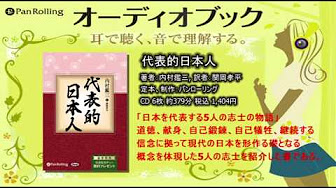
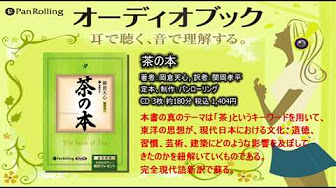
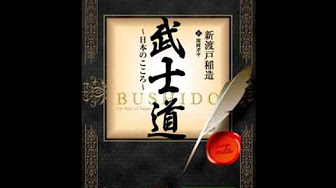


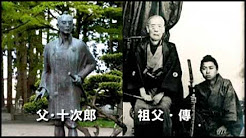
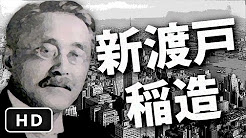
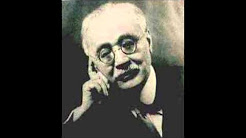



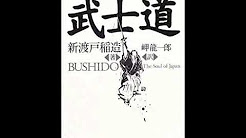
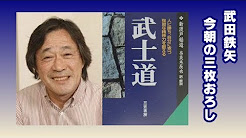
・新渡戸稲造
第1弾「世界を結ぶ『志』~新渡戸稲造の生涯~」、
第2弾「未来につながる『道』~新渡戸稲造の武士道~」、
第3弾「すべてに根ざす『愛』~新渡戸稲造の苦悩~」、
・ 新渡戸稲造の至極の名言集
・「新渡戸稲造の名言」20話
| |
・Bushido: The Soul of Japan by Inazo Nito(1-18)
・Bushido: The Soul of Japan by Inazo Nitobe(1-18)
・武士道「BUSHIDO」Japanese Ver.
・≪AI朗読≫武士道
・【武田鉄矢】『武士道』完全版
|
Bushido, the Soul of Japan
『武士道は定式化されたものではないが、昔もそして今も、日本人を鼓舞し、わが国を動かす原動力なのである』
日本人が日本人たりえる所以。
国家としての歴史的哲学体系を持たない日本の、現代社会においても尚、我々の血肉となり、在り続ける道徳律の根幹は「武士道」にあり。
日本人 新渡戸稲造博士が世界に発信した日本人論。
世代と国境を越え今なお読み継がれている世界的ベストセラー。
西洋・東洋の文化・哲学・思想と照らし合わせながら、その特異性と唯一無二の行動規範・心の拠り所を詳細に解説した普遍の書が、完全現代語訳、プロフェッショナルのナレーションで今蘇る。
21世紀。世界第三位の経済大国であるわが国日本。
政治的にも文化的にもより身近に世界と対峙する現代においてこそ、われわれの心の中に脈々と流れ続ける、日本人が日本人足らしめる「武士道」の精神を紐解く時なのではないだろうか。
本書は1世紀の時を超えた今も尚色褪せること無く、むしろその博識と見解、交える事例とそのユーモアに溢れた表現により現代人の我々にも実に痛快に日本の心「武士道」を理解させてくれる。
「武士道」がいつどのようにして始まったのか、それはどんな特徴を持ち、どのようなことを教えようとしているのか、武士以外の一般民衆にどのような影響を与えたのか、その影響がどれほど永く続いているか。
様々な角度・キーワードで武士の心得、さむらいの心の在り方をリレー形式で綴っている。
世界有数の犯罪率の低さ、大災害時での規律、自発的な他助の精神と行動は時代を超えて、親から子へと語り継がれてきた「道徳律」が存在し続けていることを如実に表している。
知っているようで知らない「日本の心」が、ここに明かされている。
内容抜粋
「今何とおっしゃいましたか?」と敬愛する教授は尋ねた。
「日本の学校には宗教の教育がないということでしょうか?」
そうですと答えると、教授は驚いて足を止めた。そして、今でも耳から離れない声音で、重ねてこう聞いた。
「宗教がない! だとしたら、いったいどうやって道徳を教えるんですか?」
この質問に私は意表を突かれ、とっさに答えを返すことができなかった。というのも、子どもの頃私が学んだ道徳というのは、学校で教わったものではなかったからである。私は、自分の持っている善悪正邪の概念を作り上げているさまざまな要素をひとつひとつ分析してみて、ようやく、それらを私の中に植えつけたのは「武士道」であったことに気づいた。
武士道とは、武士が守るよう求められる、もしくは、そう教えられる道徳的な作法である。文字に書かれたものはなく、せいぜい口伝えで伝えられた格言や、有名な武士や学者が書いたものが残されている程度である。
多くの場合そうしたものさえなく、しかしだからこそかえって深く心に刻まれ、守るべき掟<<おきて>>として強い拘束力を持っていた。ひとりの優秀な頭脳が考え出したものでもなければ、ひとりの高名な人物の生きかたが手本となってできたものでもない。数十年、数百年に及ぶ武士の歴史の中で自然に醸成されたものである。
「義は、道理に従ってためらうことなく、何をなすべきかを決断する力である。死ぬべきときは死を選び、討つべきときには討つことを選ぶ力である」
「戦いの真っただ中に飛び込んで討ち死にするのはいともたやすいことで、身分の卑しい者にもできる。生きるべきときは生き、死ぬべきときにのみ死ぬのが本当の勇気である」
「義に過ぎれば固くなる。仁に過ぎれば弱くなる」
「礼法の要点は精神を養うことにある。礼をもって静かに座っていれば、どんな乱暴者でも危害を加える気になれないほどに」
仁愛や謙譲の精神から生まれた礼儀は、他人に対する思いやりから生まれて、人への同情心を品よく優雅に表現するものだからである。
「心だに誠の道にかないなば祈らずとても神や守らん」
「忠ならんと欲すれば孝ならず、孝ならんと欲すれば忠ならず」
命は主君に仕えるための手段だと考えらえており、その理想形は、名誉のために命を捨てることであった。
「おのれの魂という畑が、優しい心で揺れ動くのを感ずるか? まかれた種が芽吹こうとしているのだ。言葉でそれを妨げてはならぬ。静かに、ひそやかに、自ら芽吹くのを見守っているのだ」
「死を軽<<かろ>>んずることは勇気のいる行為である。しかし、生きることが死よりもつらいときに、あえて生きることこそが本物の勇気である」
「かくすればかくなるものと知りながら やむにやまれぬ大和魂」
目次
訳者序文
初版への序文
改訂第10版への序文
新渡戸博士の『武士道』に寄せて
第1章 道徳体系としての「武士道」
第2章 武士道の源
第3章 「義」――あるいは正義について
第4章 「勇」――勇敢さと忍耐力
第5章 「仁」――慈愛の心
第6章 「礼」
第7章 「誠」――正直さと誠実さ
第8章 「誉<<ほまれ>>」――あるいは名誉について
第9章 「忠義」
第10章 武士の教育と鍛錬
第11章 自制心
第12章 切腹と敵討ちという制度
第13章 刀――武士の魂
第14章 女性の教育と地位
第15章 武士道から大和魂へ
第16章 武士道は今も生きているか
第17章 武士道のこれから
新渡戸稲造(Inazo Nitobe)
文久2年(1862年)、藩士 新渡戸十次郎の三男として南部藩(今の岩手県)に生まれる。
幼少期より東京英語学校に学び、少年期は、後に「代表的日本人」の著者でもある内村鑑三らとともに札幌農学校へ入学し学業を磨いた。
明治維新後はアメリカ・ドイツに渡り農政学を始め様々な研究に従事。
台湾総督府技師として台湾の殖産に携わり功績を挙げる。
国際連盟事務次長としても国際的に活躍。帰国後は様々な学校の教職を歴任した後、東京女子大学初代学長にもなる。
本書「武士道」は英語のみならずポーランド、ドイツ、ノルウェー、スペイン、ロシア、イタリアなど、主として欧米の多様な国の言語に翻訳され世界的ベストセラーとなる。旧五千円札の肖像画の人物としても有名。
TOP

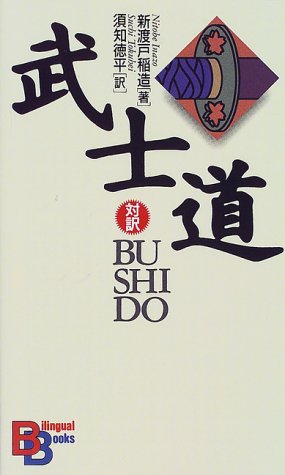
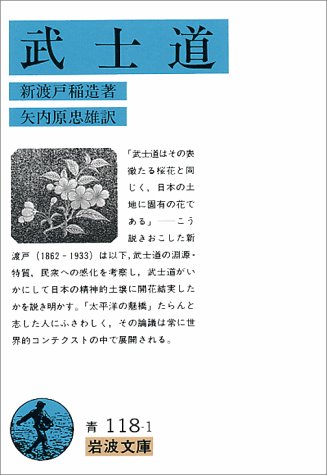
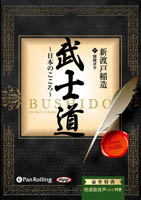 朗読,Read 朗読,Read
|
















 朗読,Read
朗読,Read
















 朗読,Read
朗読,Read